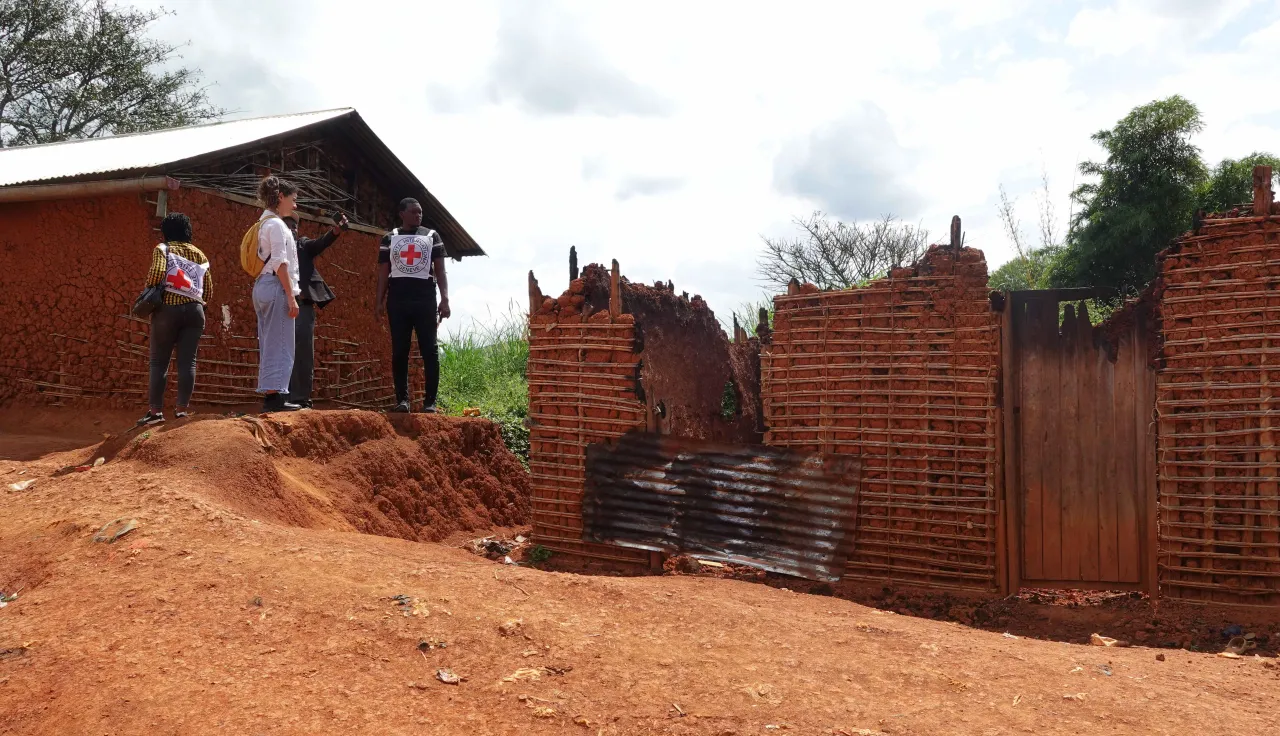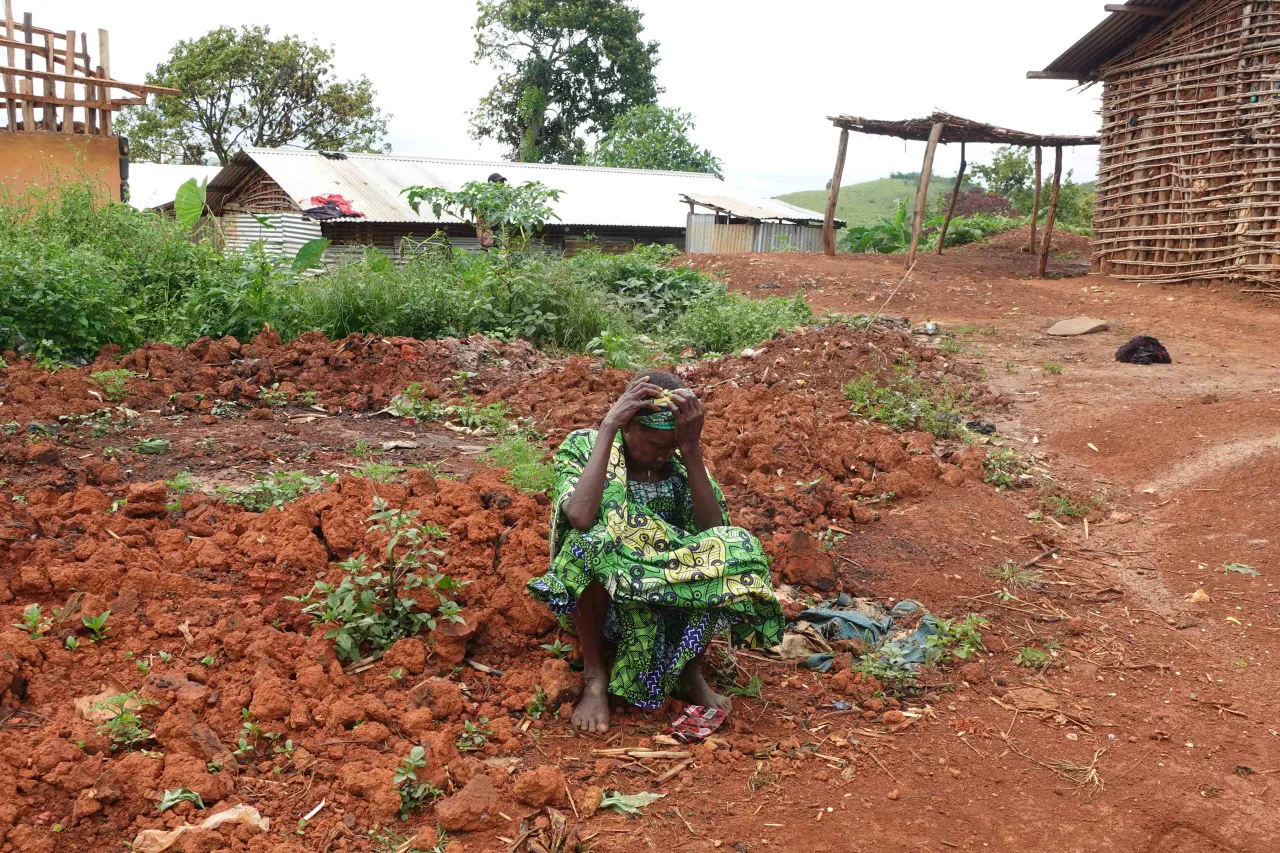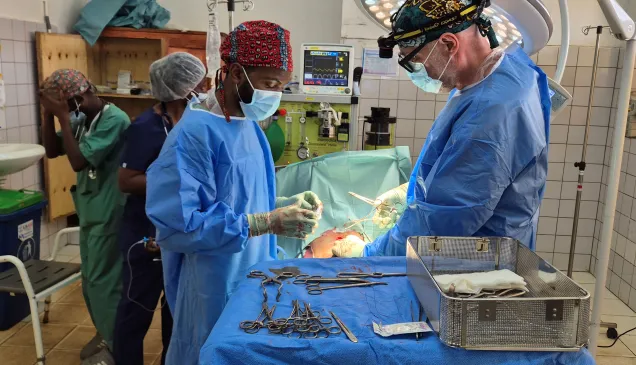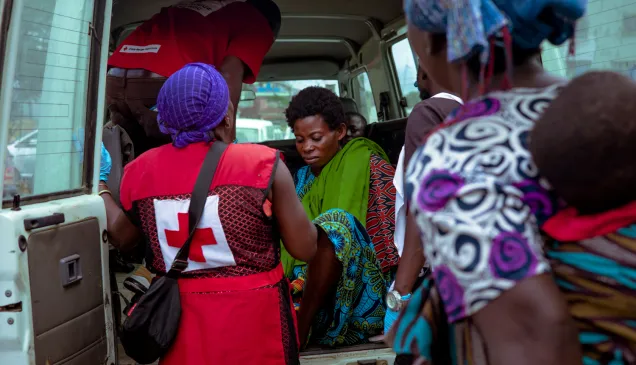Every family in the chieftancy of Mambisa, Djugu territory, has received essential items such as kitchen utensils, soap and blankets, along with enough food to last them one month. When they returned after fleeing a series of armed attacks and violent incidents in August, most found their houses burned down and their property looted. The ICRC is helping people fleeing the violence and those who are trying to return home. The aim is to meet people’s immediate needs, but their main concern is security.
One of Thérèse's* children was killed and others were seriously injured. Her house was burned down during the attack on her village. “Before the war, I lived here with my nine children and my grand-children,” she explains. “Our house wasn’t very big, but it was enough for us. I never imagined I’d see the blood of my children shed in my house, or that war would suddenly take my house away from me.”
For many years, Ituri has endured cycles of violence – military operations, clashes between armed groups and increasing numbers of incursions, attacks and other violence directly targeting the civilian population. And this despite international humanitarian law (IHL) prohibiting attacks that target civilians or civilian property.
The consequences are grave – death, injury, mass displacement, sexual violence, ill-treatment, child recruitment and the loss of homes and livelihoods. Civilians are paying the price, bearing the brunt of the violence and the consequences of breaches of IHL and humanitarian principles.





